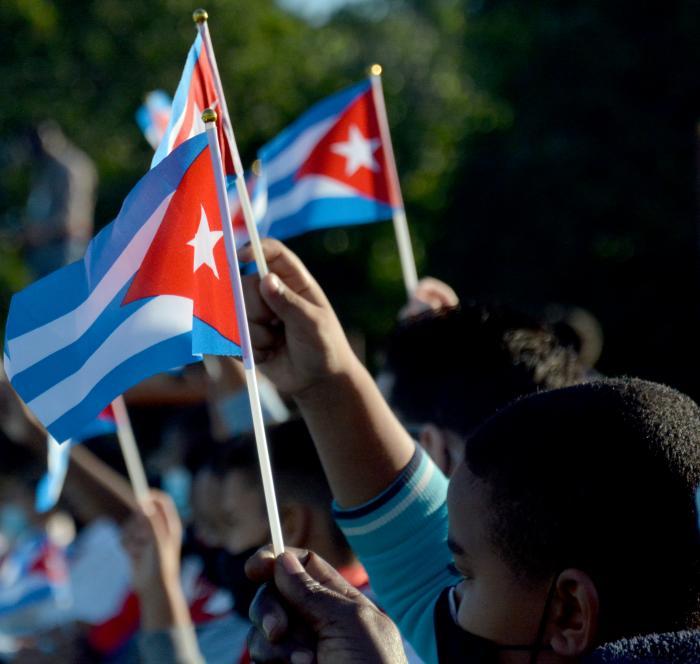
Do you want to see what unanimity is? Look at the headlines of the so-called great international press on Cuba-s national election on March 26. Do you want to see what officialism is? Compare them with the statements of the U.S. Government and its Embassy in Havana on the same subject.
In spite of the fact that the turnout in Cuba significantly exceeds that of the election days in the countries where those media outlets are based, abstentionism is the word of order in their coverage, coinciding with the call previously made by the propaganda machinery in digital networks, paid by Washington to the Island.
Dogmatic believers who think there is no democracy without a multiparty system, along the way they insist that there are no parties, competition or opposition among the candidates, but they fail to say where they came from.
It is necessary to imagine for a moment how dangerous it would be for their audiences if they knew that these candidacies were debated, approved, and sometimes even modified by a Municipal Assembly elected by secret vote of neighbors by a list of nominees in open and public neighborhood assemblies. There, in those neighborhood meetings, each voter could do what in the electoral model defended by the United States and the press that serves it in its war against Cuba, is the monopoly of a party: nominate and approve candidates.
If it is difficult to explain this to those who manage the international democraciometer, it is necessary to understand how impossible it is for them to reveal the key to the enigma: in those Cuban assemblies, the basis of the electoral system, there are no "opposition candidates," just as there are no Communist Party candidates: there are candidates of the neighbors who propose and elect them, and that which they call opposition is so numerous and so strong that it has never won a single election in a single neighborhood, no matter how much media and financial support it receives from the United States.
At this point it would be too much to ask them to give context, to talk, not about a blockade of more than 60 years, which they replace with the word sanctions to blur its impact, but about the hundreds of new Trump-Biden measures that, in the midst of a pandemic, cut offremittances, fuel, international banking access and even oxygen, among many things, seeking to surrender the Cuban Revolution through shortages, hunger and diseases.
In spite of suffering this Valeriano Weyler-style aggression in the 21st century, applied to Cuba by the United States, the Cubans in an imposing majority, as Washington and the same press would call it in any other part of the world, have gone to the polls to support their political model with their vote, is not the news, but the minority that they interpret did what the world police guided them to do.
We have already known it for a long time: unlike what happens when talking about other electoral processes, in the Cuban electoral process, the headlines are always for the loser: it is called the U.S. Government, even if the servile journalism calls it abstentionism.
As the haters who recently assaulted our baseball players and their families in Miami, and who they call opponents, help us better understand what we do not want when we are about to approve a Communication Law for Cuba: an unethical press, controlled by advertisers, shareholders and corporate interests.
Translated by ESTI















